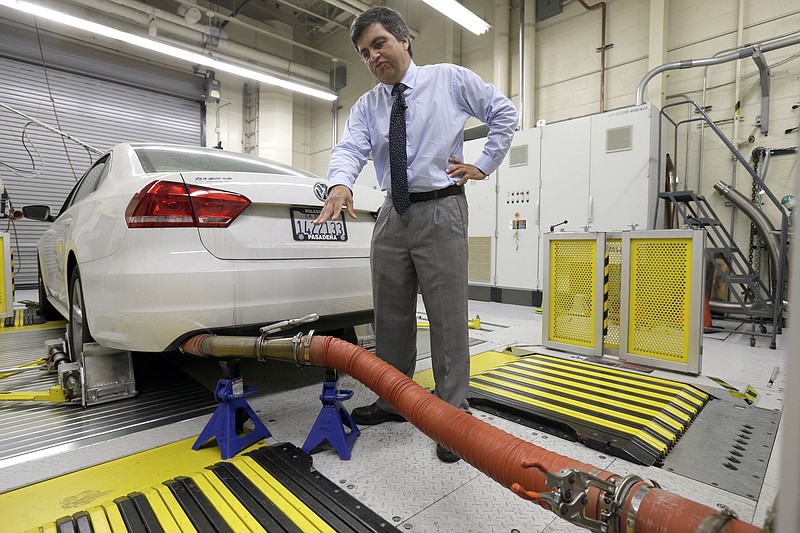VW settlement
Below are 10 areas in which states may spend money from the diesel emissions settlement to reduce pollution:› Class 8 local freight trucks and port drayage trucks› Class 4-8 school buses or shuttle or transit buses› Freight switchers› Ferries/tugs› Ocean-going vessels shore power› Class 4-7 local freight trucks› Airport ground support equipment› Forklifts and port cargo handling equipment› Light-duty zero-mission vehicle supply equipment› Diesel Emission Reduction Act option
Tennessee is expected to garner about $45.7 million from the national Volkswagen diesel emissions settlement, and the state is taking suggestions on how to spend it.
Ten categories on which the funds may be spent are part of the $2.9 billion settlement. These include reducing pollution of heavy duty diesel sources such as large trucks near population centers or replacing older city transit buses with new electric-powered vehicles.
Eric Ward, a Tennessee Department of Environment and Conservation spokesman, said TDEC will determine which projects receive funding. It will look at such factors as projected emissions reduction benefits and availability of other funding for the proposed project, he said.
A public input meeting was held in Nashville last month. Another in Knoxville is set for today at 10:30 a.m. at the University of Tennessee Ag Extension office, 1801 Downtown West Blvd. Another is slated this month in Memphis, he said.
"We expect to host events in other cities, especially Chattanooga, as there will likely be demand to host an event there," Ward said. Chattanooga is home to a VW auto assembly plant.
Also, TDEC is looking into hosting webinars, and there's a public comment form on its website for citizens who can't make it to an event or who live in an area where it may not host one, Ward said.
In Georgia, its initial share of the settlement is about $58.1 million.
The Governor's Office of Planning and Budget will apply to become Georgia's beneficiary of the funds. Plans are to work with the state Department of Natural Resources Environmental Protection Division to develop a plan incorporating public feedback and comments generated through Georgia's VW settlement website.
Alabama, slated to receive about $25 million under the VW settlement, is said to be working on a "rating system" that will weigh projects on a number of factors.
Bob Colby, who directs the Chattanooga-Hamilton County Air Pollution Control Bureau, said he's hopeful the area will see some benefits in air quality.
"There are certain areas targeted for progress for emission reductions," he said, noting TDEC is taking the lead. "Probably we'll take a look at what they've proposed."
Sandy Kurtz, a Chattanooga environmental educator, said the emission scandal was something that originated at VW's global headquarters in Germany.
"My thought is that VW has done an excellent job so far of protecting their wetland at the plant," she said.
Each state's allocation of dollars from the settlement is based on the number of registered illegal VW vehicles within its boundaries.
The settlement resolves allegations that Volkswagen violated the Clean Air Act by the sale of about 590,000 model year 2009 to 2016 diesel vehicles equipped with so-called "defeat devices."
Contact Mike Pare at mpare@timesfreepress.com or 423-757-6318.
